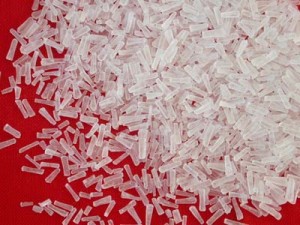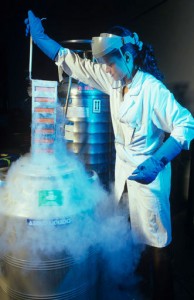 Monosodium Glutamate was discovered by Professor Kikunae Ikeda in 1908 as a result of his research to find answers to the unique taste of dashi (Japanese broth) when combining it with katsuobushi (dried skipjack tuna) and kombu seaweed. He noticed that the flavor emanating from the soup stock is not sweet, sour, salty, nor bitter. He unearthed “umami” or the “fifth taste” by extracting the glutamic acid found in kombu through the process of aqueous extraction and crystallization. From then on, the taste of many foods in the world has been influenced with this new innovation, which was known by the name of Ajinomoto, and first sold in 1909.
Monosodium Glutamate was discovered by Professor Kikunae Ikeda in 1908 as a result of his research to find answers to the unique taste of dashi (Japanese broth) when combining it with katsuobushi (dried skipjack tuna) and kombu seaweed. He noticed that the flavor emanating from the soup stock is not sweet, sour, salty, nor bitter. He unearthed “umami” or the “fifth taste” by extracting the glutamic acid found in kombu through the process of aqueous extraction and crystallization. From then on, the taste of many foods in the world has been influenced with this new innovation, which was known by the name of Ajinomoto, and first sold in 1909.
Meals that are tastier and with improved meatiness and flavor. This is the effect of monosodium glutamate in most foods. However, there have been claims coming from various people that eating dishes with MSG have made them experience nausea, burning sensations in the neck, difficulty breathing, general weakness, and palpitations. Due to these claims, the United Nations Food and Agriculture Organization (FAO) and the World Health Organization (WHA) established a new committee in the 1950s called the Joint Expert Committee on Food Additives (JECFA), which focused on studying and researching additives whether they are safe or not.
With three separate research periods in 1970, 1973 and 1987, JECFA confirmed that monosodium glutamate is safe for human consumption. It was even given the safest category as an additive with “Acceptable Daily Intake (ADI) not specified”. Even before the end of the study of this particular group, in 1959, the US Food and Drug Administration (FDA) has already evaluated MSG to be generally recognized as safe (GRAS). Despite this recommendation however, people are still concerned about MSG due to the letter of Robert Ho Man Kwok sent to the New England Journal of Medicine in April of 1968 where he shared what he felt when he ate at a Chinese restaurant, symptoms that have come to be known as the Chinese restaurant syndrome.
To break the rumors of the said claim, many food research groups have conducted studies to prove whether MSG is really bad for you or not. The Federation of American Societies for Experimental Biology (FASEB) confirmed in 1980 that the substance was safe for consumption. In 1986, FDA’s Advisory Committee on Hypersensitivity to Food Constituents mentioned that MSG is safe for the general public. One of the most recent findings is found in the November 2000 issue of “The Journal of Allergy and Clinical Immunology” where Raif S. Geha, M.D. stated that most data failed to confirm that MSG is the main cause of symptoms found in the Chinese restaurant syndrome.
Originally posted on October 25, 2011 @ 8:19 pm
